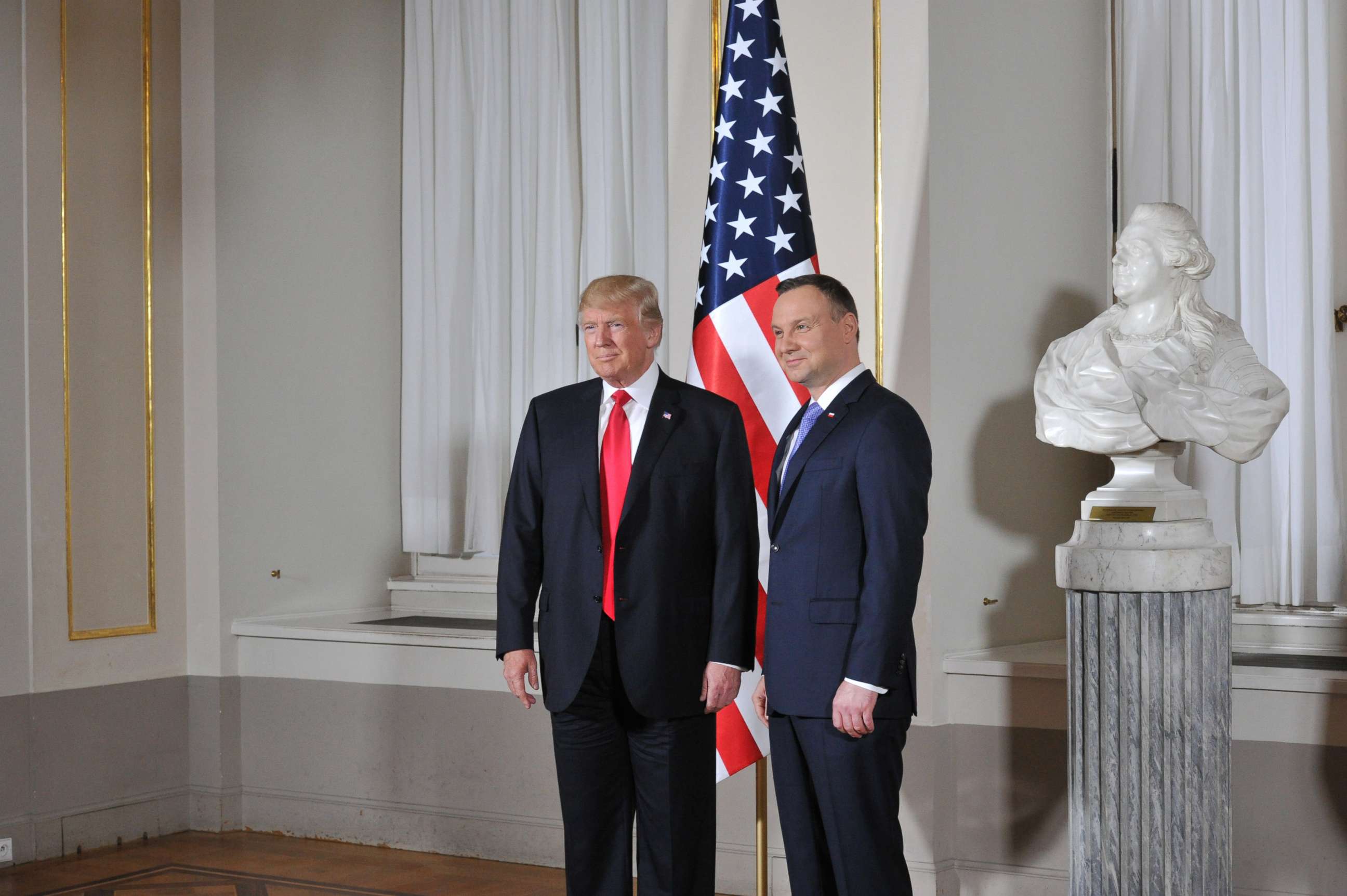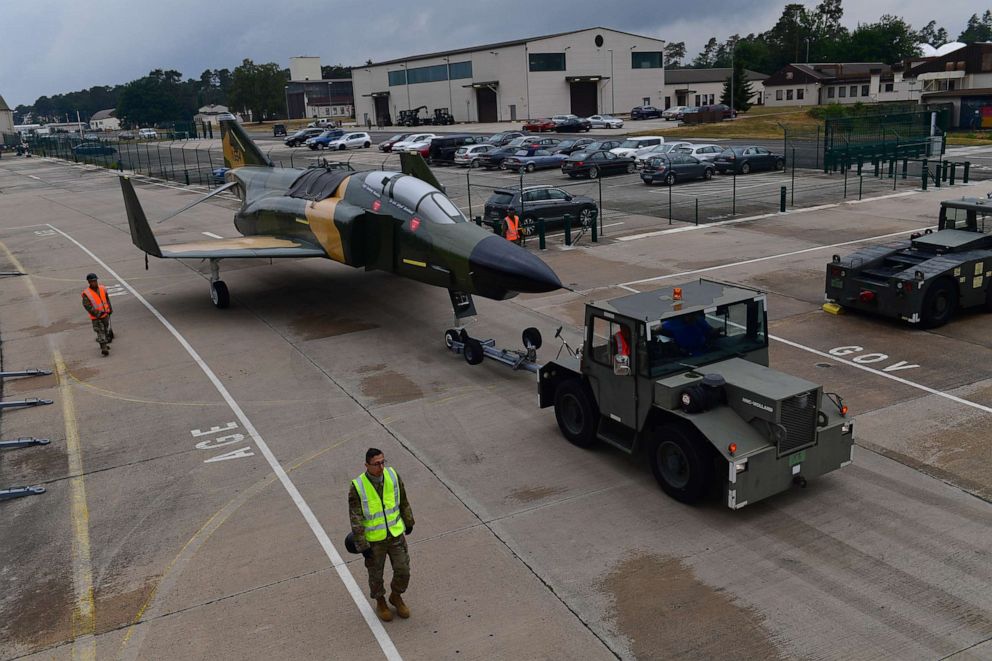Polish president's White House visit raises questions about US troops in Germany
It's unclear whether the U.S. will shift its military presence to Poland.
Poland's President Andrzej Duda's visit to the White House on Wednesday prompts a question about whether the U.S. will increase its military presence in Poland as the Pentagon draws down troop levels in nearby Germany.
He is the first head of state to visit President Donald Trump in person in months as a result of the coronavirus pandemic. Senior administration officials said both the U.S. and Polish delegations participating in the meetings at the White House will be tested for the coronavirus but wouldn't go into detail about any other COVID-related precautions that are being taken.
Those officials previewing the visit said it was "premature" to say if troops departing Germany will relocate to Poland and repeatedly directed reporters to an op-ed published in the Wall Street Journal by national security adviser Robert O'Brien.
In that op-ed, O'Brien said, "several thousand troops currently assigned to Germany may be reassigned to other countries in Europe" but did not specify the countries.

Earlier this month, Trump told reporters at the White House that the U.S. was "going to bring down the soldier count to 25,000 soldiers" from "around 52,000 now." While rotations mean troop levels can rise to as high as 52,000, there are approximately 34,674 U.S. troops stationed in Germany, according to the latest Department of Defense data from March.
Trump has been outspoken in his claim that Germany is "delinquent" on "their payments to NATO."
Although countries cannot be "delinquent" on their own defense spending, in 2006 and 2014, NATO countries agreed they would each spend 2% of their GDP on defense budgets. Germany, along with most other member states, has not lived up to that pledge. Trump cited that as grounds to withdraw U.S. troops.
U.S. troops in Germany have been a critical part of NATO's deterrence against Russian aggression in Europe, but the country is also home to American operations beyond the continent, including U.S. Africa Command's headquarters in Stuttgart and Landstuhl hospital, the largest American military hospital outside the U.S.

Asked by a reporter Tuesday what message a hypothetical troop relocation from Germany to Poland would send to Russia, a senior administration official would not elaborate beyond O'Brien's op-ed except to say "the constant message is that we have an unshakeable alliance with our NATO partners and that Poland is an extremely important, valued, and responsible member of that alliance."
While the officials wouldn't discuss troops, they touted progress in establishing a combat training center in Poland.
"The U.S. Army has already established an area support group that can be tailored to support an increase of U.S. soldiers in Poland. Despite the pandemic, we've had very successful exercises -- a sign, I think, to anyone who doubts NATO's readiness and U.S. commitment to the Alliance," an official said.
The officials said the U.S. and Poland were working on the "final details" of the Defense Cooperation Agreement between the two countries and that, once signed, "the U.S. Air Force plans to rotate an MQ-9 Intelligence Surveillance and Reconnaissance squadron into Poland and establish an aerial port of debarkation."
An official said they've also "agreed on a location for the armored brigade combat team -- ABCT -- and are in discussions regarding additional infrastructure to support the ABCT, as well as the combat aviation brigade and combat support sustainment battalion."
ABC News' Ben Gittleson and Luis Martinez contributed to this report.




